Bakuchiol vs. Retinol: Which is Right for You?
Did you know that the average woman applies over 500 synthetic chemicals to her skin every day?
From moisturisers to makeup, our skincare routines are often a labyrinth of ingredients, each promising transformative result.
Among these, two compounds have risen to prominence in the pursuit of youthful, radiant skin: Bakuchiol and Retinol.
However, beneath the surface lie hidden truths that may reshape your approach to skincare.
Retinol's Resilience Challenge:
For women with mature skin, maintaining skin resilience becomes increasingly paramount.
While Retinol's reputation as a potent anti-aging ingredient is well-established, its potential to compromise the skin's barrier function may pose a concern, particularly for mature skin.
With age, the skin's natural lipid barrier weakens, making it more susceptible to moisture loss and environmental stressors.
Prolonged use of Retinol may exacerbate this vulnerability, leading to increased dryness, redness, and irritation.
For women navigating the challenges of mature skin, the delicate balance between anti-ageing efficacy and skin barrier preservation is essential to achieving lasting radiance.
Bakuchiol's Barrier Boost:
In the quest for age-defying skincare solutions, Bakuchiol (hero ingredient in the Rose Youth Elixir) emerges as a beacon of hope for women with mature skin, and not only.
Unlike Retinol, which may compromise the skin's barrier integrity, Bakuchiol offers a gentler alternative that promotes both anti-aging benefits and barrier reinforcement.
Research shows that Bakuchiol can enhance the skin's lipid barrier, helping to lock in moisture and shield against external aggressors.
This dual-action approach not only addresses signs of ageing but also fortifies the skin's natural defenses.
Retinol's Paradoxical Effect:
Retinol, touted for its ability to promote skin renewal and fade dark spots, presents a conundrum when it comes to pigmentation management. While initial use may yield promising results in reducing hyperpigmentation, prolonged or excessive application can sometimes trigger adverse reactions.
Retinol's photosensitizing properties can make the skin more susceptible to UV damage, leading to increased melanin production and exacerbation of pigmentation issues.
Furthermore, Retinol's exfoliating action may inadvertently remove the top layers of skin, revealing underlying pigmentation and potentially intensifying discoloration.
Bakuchiol's Brightening Potential:

In contrast, Bakuchiol offers a gentler approach to addressing pigmentation concerns without the pitfalls associated with Retinol.
Studies have shown that Bakuchiol possesses melanin-inhibiting properties, helping to regulate the production of melanin without causing irritation or sensitivity to sunlight.
By targeting the enzymes involved in melanin synthesis, Bakuchiol helps to balance pigmentation levels and promote a more even skin tone.
Additionally, Bakuchiol's anti-inflammatory properties may further aid in calming existing pigmentation issues, providing a holistic approach to pigmentation management.
Thinning of the Skin:
One of the most debated topics surrounding Retinol is its potential to thin the skin over time.
While it's true that Retinol accelerates cell turnover, promoting smoother, younger-looking skin, there's speculation that this rapid turnover could lead to a decrease in the thickness of the skin's outermost layer.
This concern is especially prevalent among individuals with already thin or sensitive skin.
Skin Strengthening:
While Retinol may raise concerns about skin thinning, Bakuchiol boasts skin-strengthening properties. Research suggests that Bakuchiol can enhance the skin's barrier function, promoting resilience and protection against environmental stressors.
This attribute makes Bakuchiol an appealing choice for those looking to fortify their skin while addressing signs of aging.
Choosing Wisely for Your Skin
In concluding the Bakuchiol vs. Retinol debate, it's clear that both compounds offer distinct advantages and considerations for those seeking effective skincare solutions.
While Retinol has long been hailed for its remarkable anti-aging properties, its potential drawbacks, including hormonal disruption, pigmentation concerns, and skin thinning, warrant careful consideration.
Enter Bakuchiol, the unsung hero of skincare, offering a promising alternative with fewer reported drawbacks and comparable efficacy in addressing common skincare concerns.
As a key ingredient in products like the Rose Youth Elixir, Bakuchiol showcases its ability to deliver transformative results without compromising skin health.
If you have any questions regarding Bakuchiol or anything else skincare related, don't hesitate to leave a comment and I will get back to you as soon as possible.
 Direkt zum Inhalt
Direkt zum Inhalt
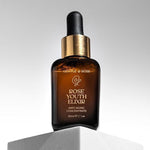
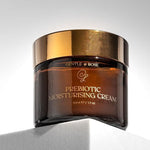
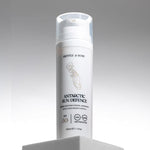
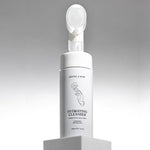
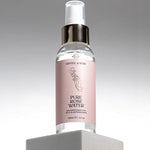




Hinterlassen Sie einen Kommentar
Bitte beachten Sie, dass Kommentare vor der Veröffentlichung freigegeben werden müssen